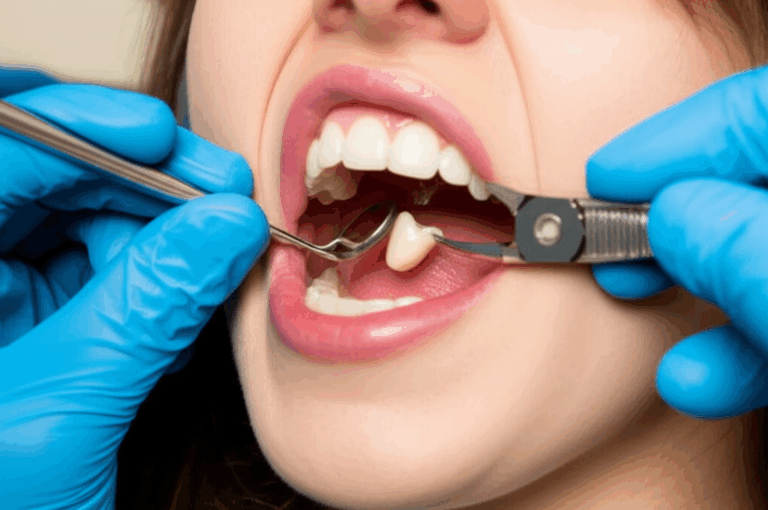
Tonsil Stones: Doctor or Dentist? Your Guide to Getting the Right Care
Tonsil stones are a common but confusing problem. If you have them, you might wonder if you should see a doctor or a dentist. This article explains exactly who can help you, when to get help, and how to feel better fast. You’ll find answers to your biggest questions, simple tips, and expert advice, all at a level everyone can understand.
Table of Contents
1. What Are Tonsil Stones (Tonsilloliths)?
Let’s start at the beginning. Tonsil stones, also called tonsilloliths, happen when tiny bits of food, dead cells, and germs get trapped in small pockets (called crypts) in your tonsils. Over time, these bits harden and turn into little white or yellow bumps.
Most tonsil stones are really small and soft. Some are more like small rocks. They hide far in the back of your throat, so you might not notice them until they get bigger or your breath smells funny.
Many people get them. About 8-10% of adults get tonsil stones at some point. Sometimes all you have is bad breath (halitosis). Other times, you feel like there’s something stuck in your throat or even a small pain in your ear. Here’s what to look for:
- Bad breath that won’t go away
- Sore throat or tickle
- Hard to swallow
- Feeling like something is stuck in your throat
- Ear pain (but not an ear problem)
- Seeing white or yellow lumps on your tonsils
Tonsil stones can be annoying. But most of the time, they’re not dangerous. Still, they can make you feel weird or uncomfortable, and you want them gone.
2. Why Do Tonsil Stones Happen?
You might ask, “Why me? Why do these stones pop up?” Good question! Tonsil stones show up when you have deep pockets in your tonsils where stuff can get trapped.
Other reasons you might get tonsil stones:
- Not brushing or flossing enough—More germs grow in your mouth.
- Tonsils that are often sore—If your tonsils are always swollen, more stuff gets trapped.
- Big or bumpy tonsils—Some people are just born with them.
- Post-nasal drip—Mucus drips into your throat, bringing germs with it.
- Allergies and acid reflux (GERD)—These make your tonsils hold more bits.
- Dry mouth or not drinking enough water—You don’t have enough spit to wash away food and germs.
- Eating habits—Sticky or milk-heavy foods can be part of the problem.
Most kids and adults with these risks aren’t doing anything wrong. Their tonsils just act like tiny caves for the smelly stuff.
3. Should I Go to the Doctor or Dentist?
Here’s where most people don’t know what to do: Should you see a doctor or a dentist for tonsil stones? Here’s the answer.
Most of the time, you should start by seeing your doctor—usually your family doctor. They know a lot about throat and tonsil problems. They can tell you if it’s really a tonsil stone or maybe something else, like strep throat or a virus.
Go to your doctor if:
- This is your first time having tonsil stones
- Your throat hurts or you have a fever
- It hurts to swallow or is really hard to swallow
- You’re not sure it’s really a tonsil stone
- What you try at home isn’t working
Dentists come in mostly if you have problems in your mouth—bad breath, gum disease, or cavities—that can make tonsil stones worse. They can look for problems and give you advice on brushing and cleaning if you’re struggling.
But if your main problem is pain, a lump, or seeing white spots on your tonsils, the family doctor or an ear, nose, and throat (ENT) specialist is the one to see.
| Symptom | See a Doctor (GP/ENT) | See a Dentist |
|---|---|---|
| Sore throat | ✔️ | |
| Bad breath only | ✔️ | |
| Visible stones | ✔️ | |
| Oral hygiene issues | ✔️ | |
| Swallowing problems | ✔️ | |
| Recurrent stones | ✔️ |
4. Who Is an ENT Specialist—And When Do I Need One?
ENT means “ear, nose, and throat” doctor (called an otolaryngologist). This doctor is the expert for anything to do with your throat, including hard-to-treat or always-returning tonsil stones.
You should see an ENT specialist if you:
- Get tonsil stones a lot
- Have big stones that hurt or are stuck
- Can’t swallow or breathe right
- Tried things at home but can’t fix it
- Already saw your family doctor and still need help
ENTs can do special stuff, like zapping away deep pockets (laser cryptolysis), coblation cryptolysis, or even taking out the tonsils if nothing else works. Surgery (tonsillectomy) is a last choice, but it almost always stops stones from coming back.
Dr. Joe Dental, an ENT doctor, says, “It’s best to start with your GP, but if you keep getting tonsil stones that make life hard, you should see a specialist. We have tools to help with tough cases.”
5. How Does a Dentist Help With Tonsil Stones?
You might be surprised—your dentist can actually help with some parts of dealing with tonsil stones. They often spot them during check-ups, especially if you mention bad breath or think something’s not right in your mouth.
Dentists can:
- Look for problems, like gum disease or cavities
- Teach you how to brush, floss, or rinse better
- Suggest mouthwashes or tools to help you clean better
- Remind you to drink water and avoid dry mouth
If your dentist thinks your problem is more than just your mouth—like white spots or swelling in your throat—they’ll tell you to see your family doctor or an ENT. Sometimes, if the stone is easy to reach and you’re okay with it, dentists can show you safe ways to remove it.
Plus, if your dental work needs checking, special labs like a dental ceramics lab help keep your mouth healthy.
But remember: Dentists don’t work on tonsils themselves. They help with mouth problems that could lead to stones, and they’re great at helping get rid of bad breath so stones don’t come back.
6. What Happens at the Doctor or Dentist?
If you haven’t had tonsil stones before, visiting the office might make you nervous. Don’t worry—here’s what usually happens.
At the Doctor:
At the Dentist:
Usually, the doctor or dentist doesn’t do anything painful. They want to find what’s wrong and help you feel better.
7. Can Tonsil Stones Be Treated at Home?
Most of the time, you can take care of small tonsil stones yourself. Here’s how:
Home Remedies:
- Gargle with warm salty water—This helps loosen stones and make your throat feel better.
- Use a water flosser—Point it gently at your tonsils to wash out the stones.
- Cotton swab or clean finger—Only if you see the stone and feel okay. Be very gentle.
- Drink lots of water—Keep your mouth from getting dry.
- Use mouthwash—Look for ones that kill germs and help with bad breath.
Never use sharp things or push too hard! If you can’t get the stone out gently, call your doctor or dentist.
Preventing tonsil stones starts with good mouth cleaning. If you need help picking tools, your dentist can give you good ideas.
8. What Are Advanced Medical Options?
If you’ve tried home ideas but keep getting tonsil stones, don’t worry. Doctors and ENTs have other ways to help:
Medical Treatments:
- Antibiotics—If your tonsils are infected or swollen.
- Medicines for swelling—To help with pain or puffiness.
- Taking out stones at the office—A doctor or ENT can press out stones safely.
- Special procedures—For people who keep getting stones, like:
- Laser cryptolysis—Uses heat to smooth out tonsil pockets, so stones have nowhere to hide.
- Coblation cryptolysis—A gentle way to fix the pockets.
- Tonsillectomy—If nothing works and you really feel bad, surgery to remove your tonsils. This almost always stops the stones, but doctors only do it if you really need it.
Your doctor will tell you about all the choices and help you decide.
9. How Can I Prevent Tonsil Stones?
Stopping tonsil stones before they start is important. The better you take care of your mouth and throat, the less likely these stones will return. Here’s what helps most:
If you want the latest cleaning tools, a digital dental lab can suggest different products or devices for your needs. Ask your dentist or doctor what might be best.
10. When Should I Get Urgent Help?
Most tonsil stones are no big deal. But sometimes they can mean something more serious. Get help fast if:
- It’s hard to breathe or swallow
- Your throat swells up quickly
- You have a high fever and bad headaches
- There’s pus, swelling, or redness that’s spreading
- You just feel really sick and not yourself
These signs might mean a deep infection (called an abscess), a strep throat, or something worse. Don’t wait—see a doctor right away.
11. Company Information: Who Can Help Keep Your Mouth Healthy?
To finish, it’s good to work with dental pros that know the newest treatments and tools. Companies like iStar Dental Lab have solutions—from crowns and bridges in their crown and bridge lab to custom retainers and night guards.
If your dentist says you might need special dental gear or wants to make sure your mouth is in top shape, working with the right experts really helps. Using good products from skilled people keeps your teeth, gums, and tonsils healthy.
12. Frequently Asked Questions
Q: Can tonsil stones go away by themselves?
A: Yes, tiny stones sometimes come out or break up on their own, especially if you brush your teeth more.
Q: Are tonsil stones dangerous?
A: Not really. Most are harmless, just annoying and can smell. Big, sore, or infected stones need a doctor.
Q: Why do I keep getting tonsil stones?
A: Some people have deep pockets or always have sore throats. Good cleaning and treating your medical stuff can help, but sometimes, surgery is needed.
Q: Should kids worry about tonsil stones?
A: Kids can get them, but not as much as adults. If a child keeps having a sore throat or trouble swallowing, see their doctor.
Q: Does chewing gum stop tonsil stones?
A: It might help because it makes more spit, but it’s not a sure fix. Brushing, flossing, and drinking lots of water work better.
13. Key Points to Remember
- Tonsil stones are common, not really dangerous, but can smell and be annoying.
- See your doctor first for most cases.
- Dentists help keep your mouth clean and spot related problems.
- Go to an ENT if stones won’t stop or get stuck.
- Home tricks work for lots of people, but don’t use sharp things or push hard.
- Surgery (tonsillectomy) is only for really bad cases.
- Clean mouth and throat means fewer stones.
- Get help fast if you have trouble breathing, swallowing, or have bad pain or swelling.
Taking care of your mouth is the best way to stop tonsil stones. Not sure what to do? Ask your doctor or dentist—they’re here to help!








